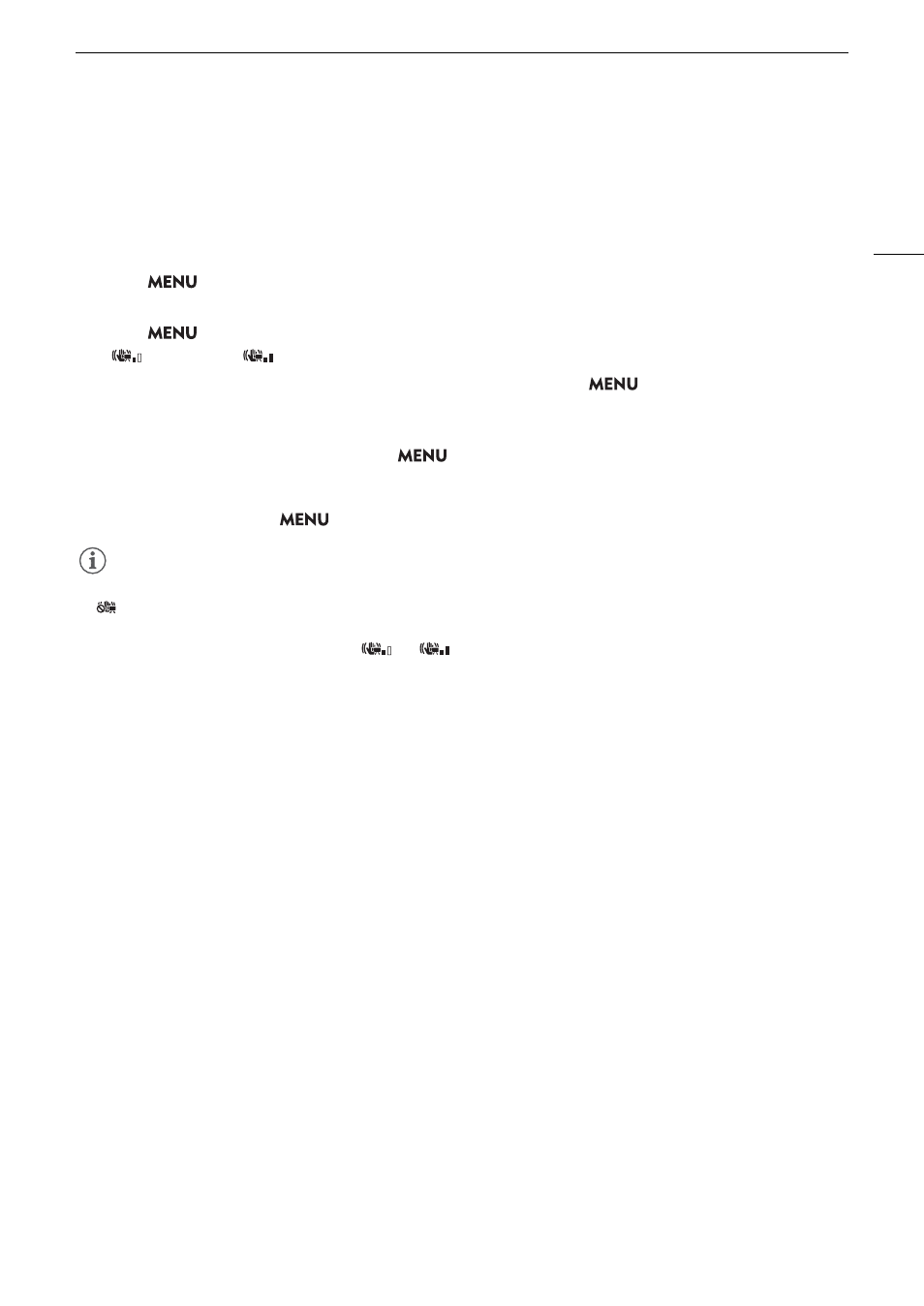Image stabilization, Image, Tabilization 93 – Canon EOS R5 C VR Creator Kit with RF 5.2mm f/2.8 Dual Fisheye Lens User Manual
Page 93

93
Image
S
tabilization
Image Stabilization
You can use the image stabilizer to compensate for camera shake and achieve steadier shots. The image
stabilizer is more effective at wider angles and the effect is reduced the more you approach the telephoto end.
The camera’s image stabilization is not available for RAW clips.
1
S
elect
> [
v
Camera
S
etup] > [Digital I
S
] > [On].
• Press the button assigned to [Digital IS] to turn this function on and off.
2
S
elect
> [
v
Camera
S
etup] > [Digital I
S
Mode] > De
s
ired option.
•
(standard) or
(high) will appear on the screen.
3 If the camera cannot obtain the focal length from the len
s
,
s
elect
> [
v
Camera
S
etup] >
[Len
s
Focal Length] and enter the len
s
’
s
focal length u
s
ing the data entry
s
creen (
A
25).
• The image stabilization is adjusted according to the focal length entered.
4 When u
s
ing an anamorphic len
s
,
s
elect
> [
v
Camera
S
etup] > [Anamorphic Corr.] >
S
queeze factor to u
s
e to correct the image
s
tabilization.
• If you selected [Lens Squeeze Factor], the anamorphic correction will be applied according to the squeeze
factor specified with the
> [
Æ
Recording/Media Setup] > [Metadata] > [Lens Squeeze] setting.
NOTES
NOTES
• If the IS function is turned off on the lens, the camera’s image stabilization function is deactivated too and the
icon will flash.
• If you set an assignable button to [Pause Digital IS] (
A
121), you can press and hold the button to temporarily
stop the camera's image stabilization (
or
will appear grayed out). This will not affect the lens’s
image stabilization.
• Depending on the subject and shooting conditions, subject blur may be more prominent (the subject may be
momentarily blurred) due to the use of image stabilization.
• Turning off the camera’s image stabilization is recommended in the following cases:
- When using TS-E lenses and fisheye lenses
- When the camera is expected to be stable, for example when it is mounted on a tripod
• If the degree of camera shake is too high, the image stabilizer may not be able to compensate fully.
• The camera’s image stabilization will not function when using super telephoto lenses with a focal length
exceeding 1000 mm.
